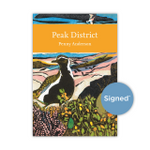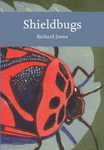By
Leon (NHBS Catalogue Editor)
8 Sep 2021
Written for Paperback

When humans abandon a place, nature comes rushing back in. Dotted around our planet are numerous areas now devoid of human habitation: ghost towns, conflict zones, pollution hotspots, and areas wrecked by natural forces. Author and journalist Cal Flyn explores thirteen such locations and here reports their sights, sounds, and smells. Surprisingly rich in ecological and biological detail,
Islands of Abandonment is a poetic and spellbinding travelogue. A dark howl of decay and human hubris, shot through with the inevitable rebirth of nature, this book haunted me long after I finished it.
Alan Weisman made this question – what would happen if humans disappeared overnight? – the subject of a thought experiment in his book
The World Without Us, but in many places it is only all too real and Flyn examines the return of nature here.
Some locations Flyn visits have almost become popular attractions, such as the decaying boomtown of Detroit, but most are not places you want to be. Often, the spectre of pollution keeps people away. Humans have left a vast legacy of waste charting various stages of technological development. In West Lothian, Scotland, Flyn climbs enormous slag heaps of spent shale dating to Scotland's 1860s-1920s heydays of oil production. Abandoned ship scrapyards around New York hide a darker legacy of soil and sludge laced with lethal levels of dioxins, PCBs, and pesticides that is best left undisturbed. Now-shuttered factories once carelessly dumped their waste in the river. Wars have left a grim stain on the land, World War I being particularly vicious. Even a century later, the Place à Gaz in northern France that Flyn infiltrates remains a virtually sterile blemish on the land: an immense pile of unused chemical weapons was burned here after the war. "It appears like a tundra of melted tarmac: waste ground of the very purest kind" (p. 188). In other places, static conflict zones remain dangerous. Guarded by soldiers and littered with landmines, they have become unlikely nature reserves. Flyn tentatively probes the buffer zone that splits Cyprus in two and discusses other examples past and present, such as the demilitarized zone between the two Koreas.
And yet, Flyn sees the same everywhere; humans leave* and nature comes rushing back in like an unstoppable tide. This has been particularly well-studied in the Chernobyl Exclusion Zone but is in no way exclusive to it. As far as I can tell, Flyn has no background in biology, yet
Islands of Abandonment is surprisingly rich in biological and ecological details that she gets right. She has studied the scientific literature (carefully referenced in endnotes) and acknowledges the input of two scientists.
Thus, she talks of ecological succession in abandoned landscapes when plants recolonize, including both human wastelands and sites of natural disasters. On Montserrat, the village of Plymouth was buried by the eruption of a volcano that "is a known erratic, a drunken lout known to stir into destructive rage even after years of troubled sleep" (p. 282). (Remarkably, she does not mention the well-documented ecological recovery around Mount St. Helens). She discusses hyperaccumulators, plants that can thrive on heavily contaminated soils and store pollutants in their tissue, which opens up the possibility of phytoremediation: using plants to clean up our mess.
An abandoned botanical garden in Tanzania offers the chance to talk invasive species and make several sharp observations. According to the IUCN, more than half of the worst invasive plant species are escapees from botanical gardens, though she is also balanced enough to discuss the arguments put forth in
Inheritors of the Earth about invasive species not always causing disruption. Now for the bit that was new to me – in some abandoned sites invasive species initially run rampant to then fall victim to native diseases or pests years or decades later. Flyn ponders what lessons this holds for our intensive, hands-on conservation efforts that often include culling "one of the biggest ethical quandaries at the heart of comtemporary conservation" (p. 219). Should we step back more often and refrain from intervention?
I was very pleased (though I am, of course, biased) to see her discuss evolution this much – and get it right. Is natural selection a painstakingly slow process? Maybe painstaking is the wrong word, she opines, for it "implies slow deliberate travel in a single direction. Evolution is based upon the opposite: sheer, random chance" (p. 174). These abandoned sites offer many case studies of how our actions affect evolution in animals and plants. She discusses rapid evolution, such as fish becoming insensitive to PCBs, and coevolution; and how invasive species settling in "does throw a little cold water of the idea of ecosystems as the intricately wrought, carefully balanced product of millennia of coevolution" (p. 224). After having introduced domestication, she asks whether the cattle abandoned decades ago on the Scottish island of Swona are an example of reverse evolution and de-domestication, where domestic species revert to "an ancestral form after a return to ancestral living conditions" (p. 257).
The last part of the book takes the bull by the horns. Just because nature can return, does not offer "a free pass to companies or governments that damaged [it] in the first place" (p. 226). She asks whether these sites are portents of civilizational collapse when overpopulation, overconsumption, and climate change will finally take their toll. This sees her engage with the Ehrlichs and the Scrantons of this world who believe it is already too late, that the geological forces put into motion will run their course no matter what, and that the best we can do is brace for impact. Because her forays have shown her the power of nature to rebound – albeit damaged, changed, and with great time and effort – she ultimately cannot accept their conclusions. "To do so is to abandon hope, to accept the inevitability of a fallen world, a ruinous future" (p. 323). Nevertheless, these final chapters make for a suitably somber crescendo to this book.
The book's subtitle captures its spirit perfectly. Devoid of self-indulgence or decadent ruin porn, I instead found
Islands of Abandonment a thoughtfully written and utterly spellbinding book. Flyn wields the pen of a poet but never loses sight of the importance of getting the biological details right. What a fantastically haunting book!
*As Flyn quickly discovers, few places are truly abandoned. She talks to the people who pass through or make their home here, sometimes by choice, but more often by misfortune.



































